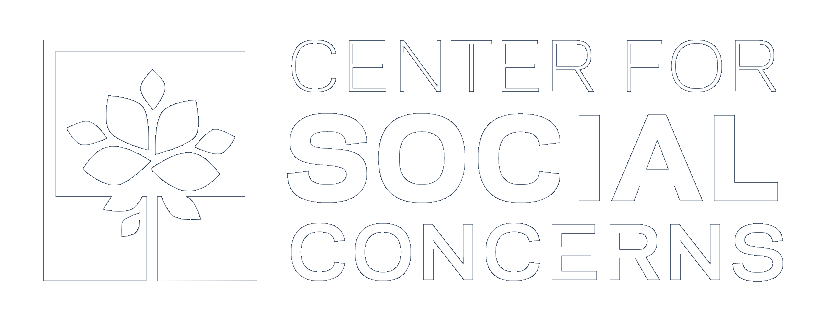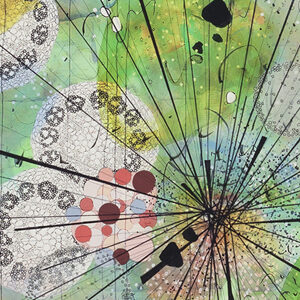I am no linguist, but I love to contemplate language. Language is loaded with meaning. Some cultures have words that encapsulate an important essence, a feeling or value that other cultures have no words for. A fellow clinician was reflecting on how the nature of the presenting complaints changed when he moved to an area with a different population demographic. He suggested that his new population seemed to somatize more (manifest psychological distress through physical symptoms), astutely observing it may be because there was no word for depression in their mother tongue.
As a clinical academic, the last decade has engrossed me in the way contemporary medical practice relates to ancient Greek philosophy. These ancient thinkers had words that accurately depict feelings and values that are often experienced but rarely articulated in health care practice. As an affiliate PhD student at the University of Birmingham’s Jubilee Centre for Character and Virtues, I looked at enacted phronesis (practical wisdom) in medical practitioners.1 I currently work as a Clinical Associate Professor in Medical Professionalism and Academic Quality at Birmingham University Medical School (UK). I am also a family medicine practitioner in an inner-city practice. These roles align in the quest to understand and address the demoralisation and increasing distrust of the profession.2 It is a privileged position, especially when it comes to resurrecting conversations on intangibles like trust, morality, meaning, and purpose (spirituality).
Through my work and study, I have come to believe that the Greek words and concepts associated with phronesis and Asklepions have the potential to liberate medical practice by seamlessly connecting healthcare to a moral orientation. Professionalism, after all, is about the morality of Medicine.3 Professionalism is a trust-generating promise.4 Trust and morality are laden with values, feelings, and interpretations. These Greek terms give us virtue literacy, where positivist, technical-rationalist methods have failed. These are words that grasp holism by default.
Phronesis
Phronesis, commonly known as practical wisdom, is an intellectual virtue described by Aristotle. It is a meta-virtue that adjudicates value conflicts. It integrates all other moral and intellectual virtues, leading to practical action guided by a moral orientation towards good. In the Nicomachean Ethics, Aristotle suggested it was the route to eudaimonia (flourishing). In 1993, Pellegrino and Thomasma suggested that the term phronesis was well suited to the work of clinicians.5 Medicine has become ever more complex, and the need to find a way to deal with this complexity and uncertainty has become a priority.6 Since the days of the Flexner report (1910), the study of medicine puts an even greater emphasis on bioscience and empirical certainty. These two diverse realities need reconciliation.
Medical education to date alludes to practical wisdom but does not really connect these areas with an overriding philosophy; rather, there are disparate modules like medical ethics, clinical decision-making, communications skills, and procedural competence. Learners who are taught in silos need an integrative heuristic with a moral orientation. If we add the development of self-knowledge (including mental habits) and character development (professional identity formation), phronesis has the potential to deliver deductive aspects combined comfortably with interpretive aspects of professional practice. Using phronesis as a heuristic equips us with tools to address those oft side-lined aspects of trust and morality. Phronesis reconciles.
Phronesis cannot happen in isolation. Environment matters: role models, the hidden curriculum, and organizational culture all play an important part in developing phronesis. Experiential learning and exploratory dialogue are essential in emergent phronesis. This is where another ancient Greek concept comes into its own in providing a nexus of ideals in which to locate medical care and healing. It has the potential to bring virtue literacy to organizations. This terminology could incorporate flourishing into our health care systems by design. It is a secret, hidden in a symbol that exists in plain sight.
Asklepion Approach
The symbol is the rod of Asclepius—you will immediately recognize it; it is an almost universal medical branding mark, a singular staff with a snake wrapped around it. The staff belonged to Asclepius, an ancient Greek hero, deified. He represented the healing aspects of Medicine. I suspect many of us do not realize how the nexus of ideals conceived in Asclepius’s healing centers (Asklepions) can help us integrate mind, body, and spirit, therefore truly aspiring to healing, holism and flourishing. The concept of holism acted as the theoretical basis for the work of the asclepiads and iatromantis (medical healers) who worked in the Asklepions. This is an integration sought after but never really mastered in current allopathic medical practice. There were over 300 Asklepions in the ancient Mediterranean world. Hippocrates was thought to have received training in the Asklepion in Kos, and Galen studied in the Asklepion of Pergamon.
These retreat centers were in therapeutic locations, by the sea or near a forest. Beauty and inspiration were recognized as part of the healing process. It was a center where the wholeness of the soul and the health of the body were intimately connected with love.
A physician must be able to make the most hostile elements of the body friendly and loving to each other. It was by knowing how to create love and unanimity in these that Asclepius established this science of ours. –Plato’s Symposium 7
In addition to dormitories for treatment and recuperation, there was an area where sleep and dreams were analyzed, attending to the subconscious mind. Catharsis was an important part of healing. There was an amphitheater and racecourse where entertainment contributed to wellbeing; curative baths, gymnasium, and nutrition consultations; and located within the Asklepion was a temple. Not only did it function on a therapeutic level, the Asklepion was an important social institution enabling cultural integration.
Can we envisage healing the whole by using phronesis and the ideals of Asklepions? Reviving these terms provide a vocabulary that could enable morally meaningful conversation, informing how best to move forward in Medicine and Medical Education. These ideas may sound like an unattainable nirvana from a dreamer. I recognize this, but we must do something to improve the patient and healthcare provider experience. We need to equip healthcare professionals with tools to deal with uncertainty and adjudicate when values conflict, to navigate the moral maze we find ourselves in. We need to genuinely put holism and eudaimonia (flourishing) at the center of what we do.
Notes
- Jameel S. Enacted Phronesis in General Practitioners Medical and Dental School University of Birmingham 2021. etheses.bham.ac.uk/id/eprint/12192.
- Montori V. Why We Revolt. A patient revolution for careful and kind care. 2nd. ed. New York.: Mayo Clinic Press; 2020.
- Bontemps-Hommen CMML, Baart A, Vosman FTH. Practical wisdom in complex medical practices: a critical proposal. Medicine, Health Care and Philosophy. 2019;22(1):95–104.
- Brody H, Doukas D. Professionalism: A framework to guide medical education. Medical Education. 2014; 48:980–981.
- Pellegrino E, Thomasma D. The Virtues in Medical Practice. New York: Oxford University Press 1993.
- Gawande A. The checklist manifesto: Profile Books; 2011.
- Winslow S. “What Dreams May Come”: Ancient holistic healing at Asklepion In. Parabola—The search for meaning 2021.
















